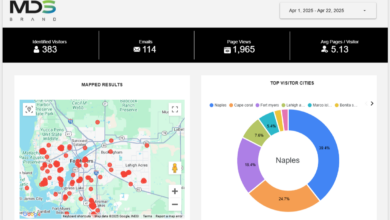Be a maximalist in PR and marketing communication

“Glenn, why does this magazine always publish stories about our competitors?” When I worked in PR for a manufacturer years ago, I sat next to the president of the company. And when his mail came, he would scan the trade and consumer magazines looking for who got ink, and how much. (“Ink” would be a digital placement today, but we called it ink even in the early days of the internet). I had to be careful with my response, but it usually ended with, “Because they talk to the media often.”
We did not talk to the media often. As a relatively small and highly conservative engineering company, we did PR when we had to, and not any sooner. Now, you’d expect me, as the PR guy (partly in job preservation mode) to lobby for increased PR activity. But it was more philosophical than economical for me. It was also proven by the very mail and magazines we all received – and it’s even more true today.
More communication is better than less, for three reasons.
1. Tell your story or someone else will
Some businesses choose less-frequent communication because they feel they don’t have any news to share. And I can applaud that. Don’t communicate unless you have something important to say, right? Yeah, but no. Find something important to say and say it.
In a competitive marketplace, a lack of communication can quickly lead to “What happened to that company?” Even worse, if you don’t communicate for yourself, your competitors will communicate in your place. If you’re in the service business, this is easy. You can tell stories about problem solving in a variety of ways. For products, it can be trickier, but it doesn’t need to be. Focus on how your products help people through value or innovation, for example, and share that.
2. People are always looking for something (to read or view or listen to)
Broadcasting your stories used to require “earning” the attention of a published media professional and then, after a nice liquid lunch perhaps, you could expect your story to print. Honestly, it hasn’t been that long, but we’re all publishers today. With that comes the difficult publishing work of attracting an audience. But that gets easier the more you publish. If you communicate, they will read – or watch or listen.
You have a website, at least, and probably a social media account or two. They all need content. Lots of content. And you consume other content (yeah, sorry to use that phrase, but it works) like this magazine and others. Editors of those things need stories and are happy to connect and discuss publishing your work – trust me!
3. It’s a self-improvement exercise
Maybe the best reason for telling your story is that it gets better each time you tell it. The practice of communicating and marketing yourself, your products and your services is like any other practice. You’ll improve through the process and through the feedback you receive.
Writing is hard, so is podcasting and video work. Doing it makes you better at doing it. And here is my anti-AI moment. While generative AI tools like ChatGPT and others might save you time, they don’t help you communicate better (you’ll be a better technologist, maybe, and that’s okay). You become a better writer by writing, and by reading. Communicate often, share your stories widely and listen for the responses you’ll get. You need to communicate today – your competitors are.
Glenn Hansen is a contributor to Boating Industry and the editor of OPE+, the trade media serving power-equipment and landscape-service professionals. He’s been involved in media, manufacturing and the power retail market for years, covering motorcycles, boating, and power equipment.




